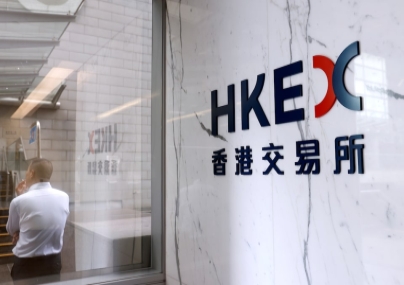
Long the destination of choice of Chinese companies looking to incorporate offshore, the British Virgin Islands (BVI) is coming under increasing scrutiny in Hong Kong as the SAR looks to tackle money laundering. Dana MacLean finds out more.
For more than three decades, the British Virgin Islands (BVI) has been the destination of choice for Chinese companies looking to incorporate offshore. According to a Financial Times report, 60 percent of the Caribbean country’s government revenue comes from financial services, with Asia – predominantly Chinese companies – accounting for a little less than half of that.
But now, the BVI faces increasing difficulties setting up companies in Hong Kong due to tightened regulations, as banks in the SAR now insist on stricter requirements for opening BVI accounts. The two banks with the most significant presence — HSBC and Standard Chartered Bank— since early 2014 frequently refuse to open BVI accounts.
“Undoubtedly more questions are asked when trying to open a bank account for a BVI company,” says Anthony Oakes, the Hong Kong-based head of finance at law firm Ogier. “But more questions are also asked now when opening a bank account for companies from all jurisdictions, including Hong Kong,” he adds, noting a general tightening in regulations with approval depending highly on the bank and client relationship.
According to the Financial Times, before the 2007 global financial crisis, BVI boasted roughly 750,000 companies, or 34 incorporations for each of its 23,000 residents. Incorporations plummeted to 404,000 in 2007 partly as a result of the crisis – but also because dormant companies were no longer included on the register – before climbing to a post-crisis peak in 2011, but they have fallen each year since, the newspaper added.
Global pressure to combat money laundering— spurred on by a series of leaked offshore financial records starting in April 2013, according to the International Consortium of Investigative Journalists (ICIJ) — has culminated in worldwide efforts to curb tax evasion and fraud through heavier bank and government monitoring of cross-border transactions.
“BVI is still the world’s leader, by some distance, in terms of the numbers of companies being incorporated,” says Jeffrey Kirk, the managing partner and corporate group head of Appleby in BVI, who adds that BVI still boasts the best track record for the jurisdiction's use for joint venture, ultimate holding, or intermediate parent companies.
The increased push for transparency and disclosure in Hong Kong has caused funds and financial products to have longer lead times and require more caution from clients seeking to open BVI accounts, possibly weakening Hong Kong's status as a financial hub for offshore accounts.
The revelation that one to four trillion dollars left China for BVI via offshore accounts of Chinese officials since the start of the millenium, according to ICIJ, may have contributed to the sudden exacting policies of banks in Hong Kong for BVI. Tax information sharing agreements (TIEAs) now exist between 51 countries worldwide, with many of them signed after 2012 and 22 of which are between the BVI and countries including with India, Canada, Portugal, China and Ireland.
The mainland also dropped four points in the International Corruption Index, leaving it trailing behind the likes of the infamously and unapologetically nepotistic Liberian regime, according to Transparency International.
Initially after Hong Kong banks' introduction of more stringent new banking regulations, there was a drop in use of BVI incorporated companies for structuring transactions, with other Greater China and Singaporean banks stepping in to fill the breach and facilitate account openings in alternative offshore jurisdictions including the Seychelles, Cayman Islands and Bermuda.
Yet firms say positive changes have emerged from it, and BVI remains an attractive jurisdiction for incorporations and trusts because of its favorable tax regimes and lenient regulations that afford the true owners both significant anonymity and control.
BVI regulations in the past half-decade, including the 2010 Mutual Funds Act, have raised the bar on fund governance and the competence of its board of directors, favouring investors and maintaining the jurisdiction's position as a “dominant player in the offshore corporations sphere,” according to Appleby's Multi-jurisdictional Guide on Investment Funds.
“Whilst each of the above mentioned jurisdictions has a lot to offer, they do not have the record of the BVI in terms of the numbers of corporate vehicles incorporated and therefore the track record of use of the BVI as joint venture or ultimate holding companies or intermediate parent companies,” says Kirk, whose firm works in BVI as well as the other three jurisdictions.
“Competition should be welcomed as it drives service and products so as to offer the best alternatives to clients,” he adds
In addition, BVI accounts in Hong Kong may have already started to regain the momentum lost in 2013 and 2014.
“There is a misconception that it’s impossible to open BVI accounts now, but that’s not actually the case,” says Oakes. “Business users quickly realised that those jurisdictions are not as well regulated and do not have the necessary infrastructure of established legal and financial services providers.”



